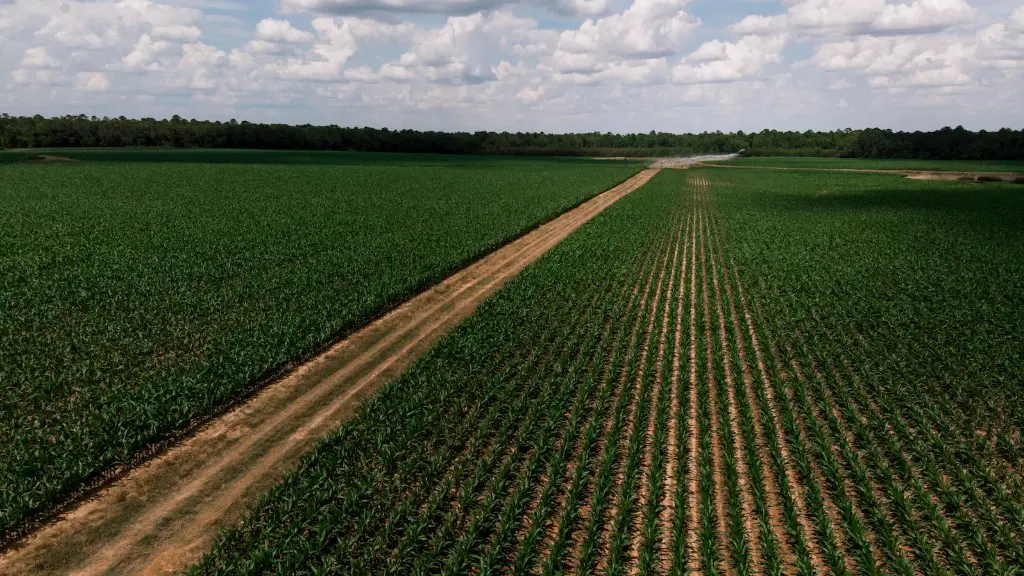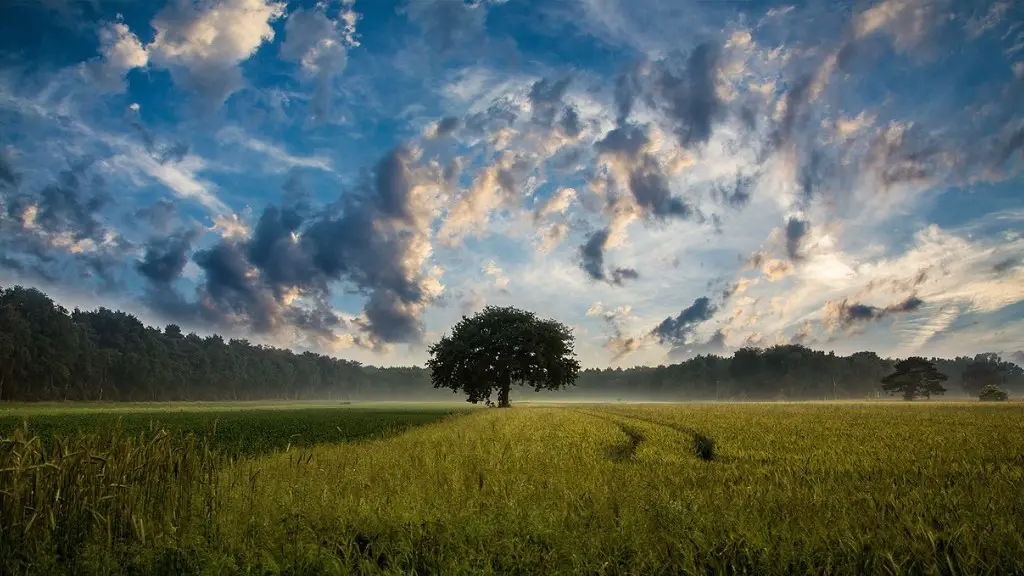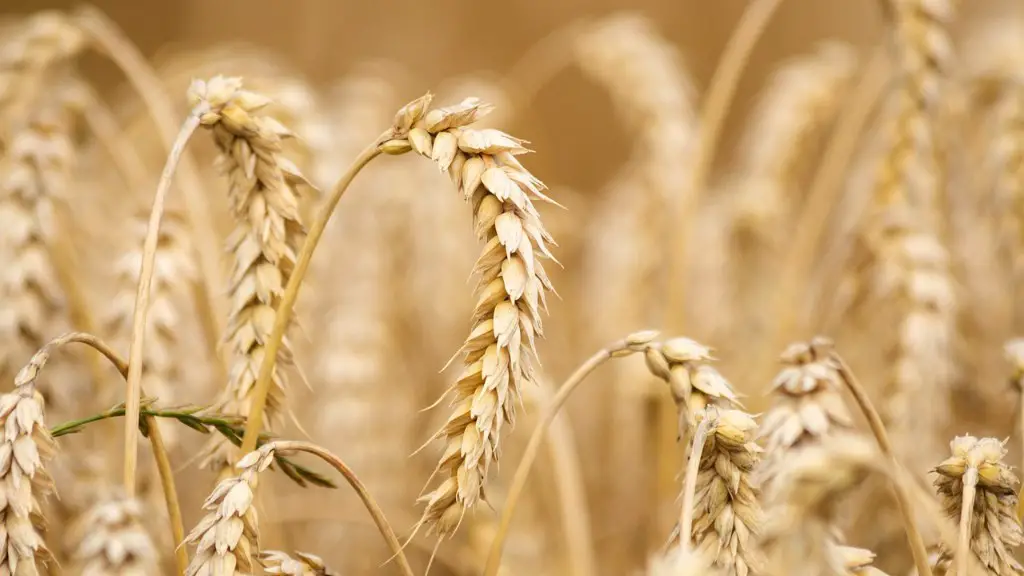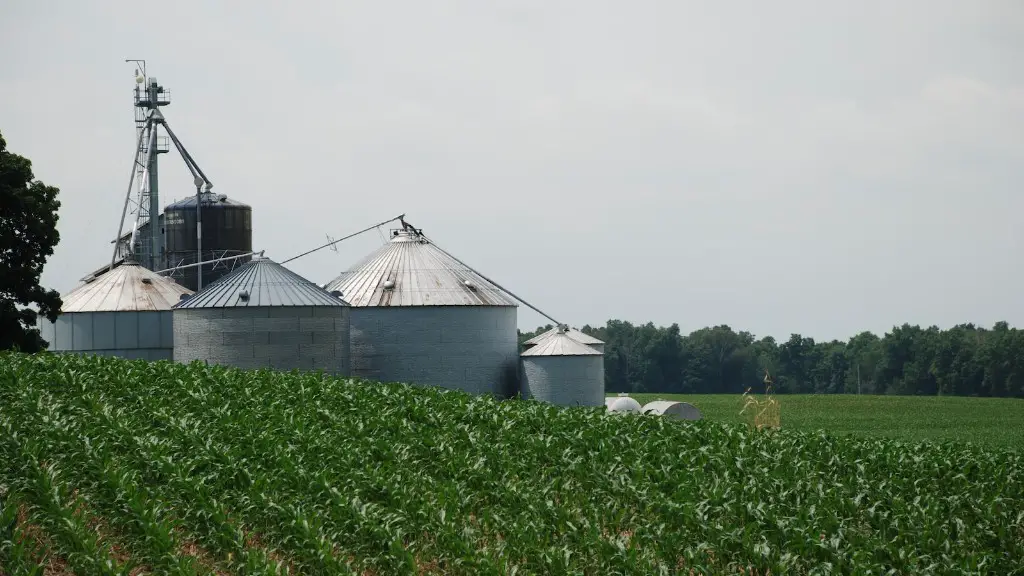Agriculture is the process of producing food, feed, fiber and other goods by raising plants and animals. Agriculture was the key development in the rise of sedentary human civilization, whereby farming of domesticated species created food surpluses that supported a more dense population, and the domestication of plants and animals led to the formation of new cultures. Agriculture has since played a major role in human history, aiding in the Spread of civilization, population growth, and technological advancements. Today, agriculture is a vital sector of many economies, providing jobs for billion of people around the world.
Agriculture is the process of producing food, feed, fiber and other desired products by the cultivation of certain plants and the raising of domesticated animals. Agriculture is often referred to as the ” BACKBONE OF HUMAN CIVILIZATION ” because it has been a fundamental contributor to the human way of life for millennia. It is even possible that Agriculture is the oldest human occupation. The importance of agriculture has been steadily declining since the start of the Industrial Revolution in the 18th century. This is largely because of mechanization and the introduction of synthetic fertilizers and pesticides, which have made farming much easier and more efficient. Nevertheless, Agriculture remains an important part of the global economy, employing over 1.3 billion people worldwide. It is also a major source of food for both humans and animals.
What is the most important in agriculture?
The agriculture industry is one of the most important in the world as it is responsible for the food supply. Every aspect of the industry, from harvesting crops to raising livestock, is essential in meeting the daily food needs of people. This industry is vital in sustaining life and must be protected and supported.
Agriculture is the world’s oldest and largest industry, employing more than one billion people and generating over $13 trillion dollars worth of food annually. Pasture and cropland occupy around 50 percent of the Earth’s habitable land and provide habitat and food for a multitude of species. Agriculture has played a vital role in human history, shaping our societies, economies, and cultures. Today, agriculture faces many challenges, from climate change and water scarcity to the need to feed a growing population. But with creativity and innovation, we can overcome these challenges and continue to build a prosperous and sustainable future for all.
What are 3 reasons why agriculture is important
1. It’s the main source of raw materials
2. It’s important to international trade
3. It plays a big role in a nation’s revenue
4. It provides employment
5. It’s crucial to a country’s development
6. It can help heal the environment
7. It goes hand-in-hand with war
8. It’s a big part of the economy
9. It can help reduce poverty
10. It’s important to our way of life
Agriculture is the main source of food and fabrics for the world. Products like cotton, wool, and leather come from agricultural sources. Agriculture also provides wood for construction and paper products. The methods used in agriculture may vary from one part of the world to another.
What are the five benefits of agriculture?
Farming is a great way to get some exercise and fresh air. It can be challenging and stimulating work, providing a source of income in rural areas. Farm work also helps develop younger generations, teaching them important skills and responsibility. Plus, farming can help the environment thrive by producing healthy food and keeping the land healthy.
Agriculture plays a vital role in the Indian economy. It is the main source of livelihood for more than half of the population and contributes around 18 per cent to the country’s GDP. The sector is also a major source of employment, providing employment to more than 54 per cent of the workforce.
Despite its importance, the agricultural sector in India is facing a number of challenges. The sector is heavily dependent on the monsoon, which is highly unpredictable. This makes it difficult for farmers to plan their cropping patterns and often leads to crop failures. The small and marginal farmers, who form the majority of the farming community in India, are the most vulnerable to such vagaries of nature.
The other big challenge facing the sector is the declining productivity. The average yield of crops in India is much lower than the global average. This is due to the poor quality of seeds, lack of irrigation facilities, and the use of traditional farming methods.
The way forward for the agricultural sector is to focus on increasing productivity and ensuring farmers’ livelihood security. This can be done by providing better quality seeds and irrigation facilities, and by promoting the use of modern farming practices. The government also needs to provide adequate financial and technical support to the farmers.
What are the 10 benefits of agriculture?
Agriculture is crucial for the Nigerian economy – it is the source of the food supply, a major source of clothing, and a provider of raw materials for industries. It also creates jobs opportunities and contributes to the gross domestic product (GDP) and foreign exchange earnings. Here are 10 reasons why agriculture is important in Nigeria:
1. Agriculture is the primary source of food for the Nigerian people.
2. It is a major source of livelihood for many Nigerians, with over 60% of the population engaged in agriculture-related activities.
3. Agriculture is a major contributor to the Nigerian economy, accounting for about 24% of the GDP.
4. It is a major source of employment, with over 40% of the workforce employed in the sector.
5. Agriculture is a key driver of rural development and plays a vital role in poverty alleviation.
6. The sector provides raw materials for industries, such as textile, food processing, and cosmetics.
7. It is a major source of foreign exchange, with agricultural exports accounting for about US$9 billion in 2016.
8. The sector contributes to food security and enhances nutrition and diet diversity.
9. Agriculture plays a
1. Agriculture is the single largest employer in the world.
2. There are 914 million acres of farmland just in the US.
3. The average US farmer can feed 155 people.
4. Beef farming accounts for 29% of American farms.
5. Agriculture plays a vital role in the US economy and food security.
How does agriculture reduce poverty
The poorest people in society often benefit the most from agricultural growth. This is because agricultural growth leads to increased demand for labor, which in turn can lead to higher wages and more opportunities for work. This can provide a much-needed boost to the incomes of the poorest people in society.
The agricultural sector is a significant contributor to the US economy, accounting for around 54% of GDP in 2021. The output of America’s farms was estimated at $1647 billion in 2021, equivalent to around 07% of GDP. These industries are important drivers of economic growth and provide essential products and services for the US population.
What benefits does agriculture have to humans?
With the world’s population projected to reach 9.7 billion by 2050, it is imperative that we produce sufficient human food, feed, fiber, and fuel to meet the needs of a sharply rising population. At the same time, we must protect the environment and expand the natural resources supply to sustain the economic viability of agriculture systems.
The town has large cattle markets and an agricultural trade. Clermont is the chief market for the grain and other agricultural produce of Auvergne and Velay.
What is the #1 crop produced in the world
In terms of the most valuable crops, maize (corn) tops the list with a global gross production value of $191 billion USD. China is the country with the highest gross production value for maize, at $612 billion USD. Wheat is the second most valuable crop, with a global gross production value of $168 billion USD. China is again the country with the highest gross production value for wheat, at $507 billion USD. Soybeans are the third most valuable crop, with a global gross production value of $107 billion USD. The United States is the country with the highest gross production value for soybeans, at $407 billion USD. Eggs are the most valuable livestock product, with a global gross production value of $936 billion USD. China is the country with the highest gross production value for eggs, at $261 billion USD.
Agriculture has a significant impact on the environment. Five of the most important environmental effects are soil fertility loss, eutrophication of water bodies, deforestation, climate change and pesticide pollution.
Soil fertility is essential for agriculture, but it is being lost at an alarming rate due to agricultural practices. Eutrophication, or the enrichment of water bodies with nutrients, is another major problem caused by agriculture. This can lead to the overgrowth of aquatic plants and algae, which can degrade water quality and disrupt ecological balance. Deforestation is another major concern, as it can lead to the loss of valuable ecosystems and habitats. Climate change is also a major concern, as agriculture contributes significantly to greenhouse gas emissions. And finally, pesticide pollution is a major problem, as these chemicals can contaminate soil and water and potentially harm human health.
What are 2 examples of agriculture?
Agriculture has been divided into two different types: industrialized agriculture and subsistence agriculture. Industrialized agriculture is characterized by large-scale production, mechanization, and the use of synthetic inputs such as fertilizers and pesticides. Subsistence agriculture, on the other hand, is typically carried out by small-scale farmers using traditional methods and largely focused on meeting the needs of the local community.
Agriculture is essential for economic growth and development. It is the provider of food, a cornerstone of human existence, and a furnisher of industrial raw materials, an important contributor to economic activity in other sectors of the economy.
How did agriculture impact society
Agriculture has been the cornerstone of human civilization for millennia. Out of agriculture, cities and civilizations grew, and because crops and animals could now be farmed to meet demand, the global population rocketed—from some five million people 10,000 years ago, to more than seven billion today.
Today, agriculture is still vital to the global economy, providing food, jobs and livelihoods for billions of people around the world. But it faces a host of challenges, from climate change and water scarcity to dwindling soil fertility and the ever-increasing demand for fresh produce.
The future of agriculture will be determined by our ability to meet these challenges head-on. With the right policies and investments in place, we can ensure that agriculture continues to play a vital role in our shared future.
There are many reasons for the decline in agricultural productivity, including:
-Low education levels of farmers and lack of access to new knowledge developed by farmers, researchers or agri-business companies.
-Lack of access to inputs, credit and markets.
-Biophysical conditions, such as mountainous areas or low levels of rainfall, which make it difficult to farm.
Final Words
Agriculture is the science, art, and business of cultivating plants and livestock for human use. Agriculture is important because it provides food, fiber, and other products for people to consume. Agriculture is also a major source of employment and income for many people around the world.
Agriculture is the process of producing food, feed, fiber, and other desired products by the cultivation of certain plants and the raising of domesticated animals. Agriculture is important because it provides us with the majority of the food we eat. It also plays a vital role in the economy, providing jobs for millions of people around the world.





